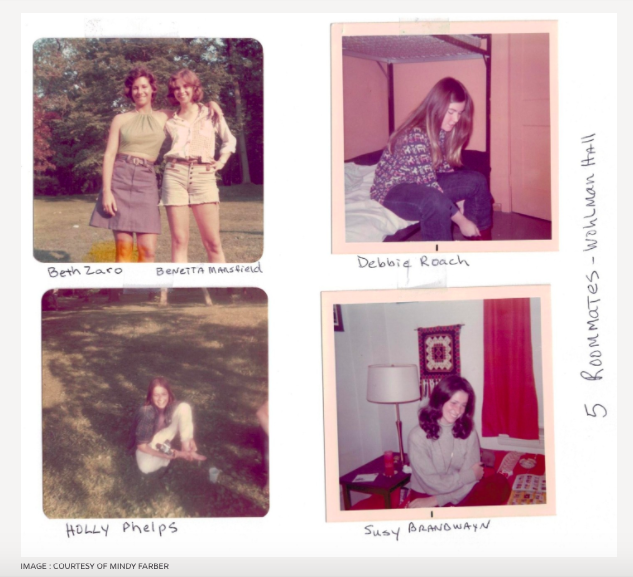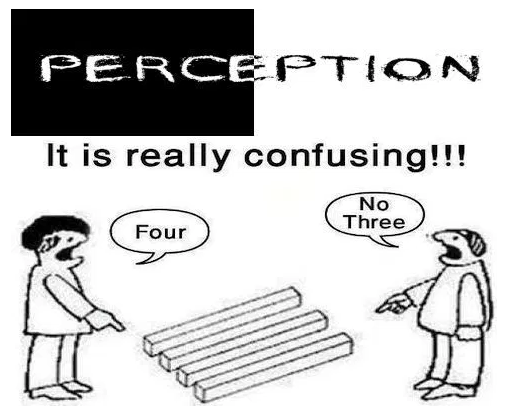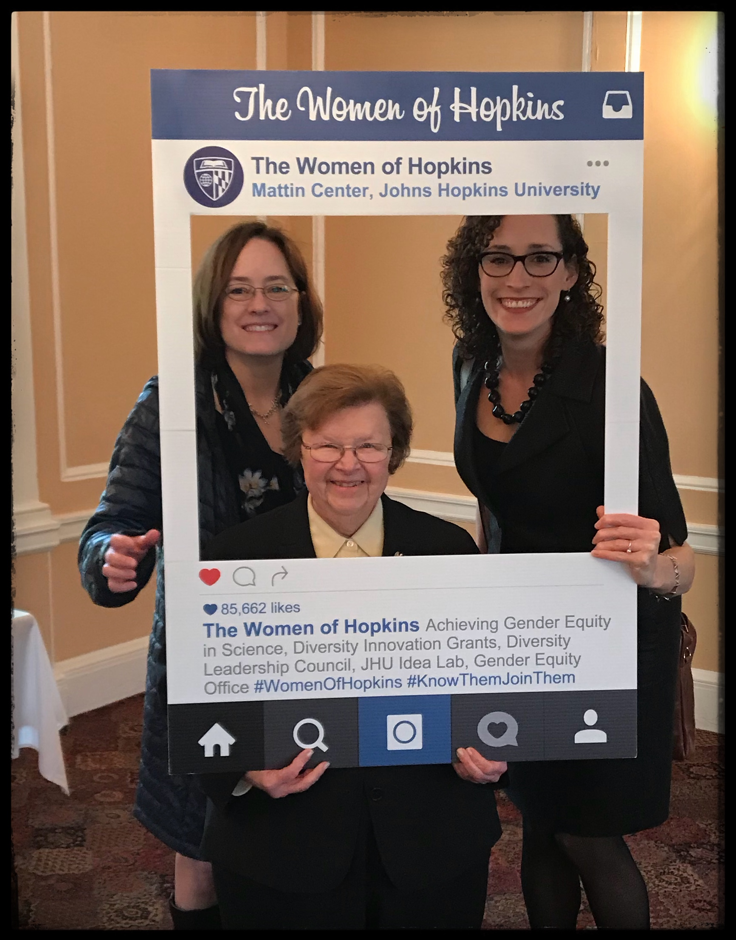 Please stop by Mudd Atrium on Thursday, May 3, between 4-5:30pm for happy hour!
Please stop by Mudd Atrium on Thursday, May 3, between 4-5:30pm for happy hour!
Our topic of discussion will be Student Evaluations of Teaching (SETs). That having been said, you can chat about anything you please.
If you’re curious about SETs, browse the working reading list below.
First let’s set the stage.
In her Slate article on her SET [Student Evaluations of Teaching] research, Kristina Mitchell starts this way:
“Imagine that you’re up for a promotion at your job, but before your superior decides whether you deserve it, you have to submit the comments section of an internet article that was written about you for assessment.
Sound a little absurd?
That’s in essence what we ask professors in higher education to do when they submit their teaching evaluations in their tenure and promotion portfolios.”

SET and Bias
Please click over to our post on gender bias and potential employment discrimination links to recent studies revealing gender bias–even in online courses, where the students never saw or heard the instructor, but knew that the instructor had a traditionally female name.
Keep reading . . . our post “More on Teaching and Tenure” links to studies of SET reliability.
One more link: Victor Ray, “Is Gender Bias an Intended Feature of Teaching Evaluations?” Inside Higher Ed, Feb 2018
On Teaching: “The Anxiety of Authority”
Elizabeth Alexander‘s essay “The Anxiety of Authority” isn’t about SETs, but it is about how we are perceived as professors, as gendered and racialized (and so on) persons, and as authority figures. It was published in 1994, when Professor Alexander was the only African-American woman teaching undergraduates at the University of Chicago. This essay is about teaching, students, isolation, and the different kinds of knowledge, logic, pedagogy and sustenance that she calls upon. Alexander, currently at Columbia, was recently named the next president of the Mellon Foundation.
(Scroll down for a few more essays by faculty about their teaching, how they think about the work of higher ed, and the challenge of accounting for all of that in a SET. But first, more about SETs.)
Reading and Rethinking SETs
The Innovative Instructor’s post “Learning from Student Evaluations” (April 2017) draws on recent work from Carl Wieman and Sarah Gilbert on STEM teaching practices inventory and links to a helpful guide to SETs from Vanderbilt.
Two articles from the Journal of Assessment & Evaluation in Higher Education in the early 2000’s point out the mixed (and mixed-up) use of SETs: are they to improve teaching? to measure teaching? to provide feedback on teaching? to measure students’ perceptions of teaching? to contribute significantly to tenure decisions–and if so, do the authors of the SETs know this?
David Kember, Doris Y. P. Leung & K. P. Kwan, “Does the Use of Student Feedback Questionnaires Improve the Overall Quality of Teaching?” From the abstract: “An investigation was conducted into 3- or 4-year departmental sets of student feedback questionnaire data from one university. Only four out of 25 departments had significant changes to any of the six dimensions in the 3- or 4-year period, and three of these significant changes were falls. There is, therefore, no evidence that the use of the questionnaire was making any contribution to improving the overall quality of teaching and learning of the departments, at least as perceived by the students.”
Yining Chen & David B. Hoshower, “Student Evaluation of Teaching Effectiveness: An assessment of student perception and motivation” From the abstract: “Over the past century, student ratings have steadily continued to take precedence in faculty evaluation systems in North America and Australia, are increasingly reported in Asia and Europe and are attracting considerable attention in the Far East. Since student ratings are the most, if not the only, influential measure of teaching effectiveness, active participation by and meaningful input from students can be critical in the success of such teaching evaluation systems. Nevertheless, very few studies have looked into students’ perception of the teaching evaluation system and their motivation to participate. This study employs expectancy theory to evaluate some key factors that motivate students to participate in the teaching evaluation process. The results show that students generally consider an improvement in teaching to be the most attractive outcome of a teaching evaluation system. The second most attractive outcome was using teaching evaluations to improve course content and format. Using teaching evaluations for a professor’s tenure, promotion and salary rise decisions and making the results of evaluations available for students’ decisions on course and instructor selection were less important from the students’ standpoint. Students’ motivation to participate in teaching evaluations is also impacted significantly by their expectation that they will be able to provide meaningful feedback. Since quality student input is an essential antecedent of meaningful student evaluations of teaching effectiveness, the results of this study should be considered thoughtfully as the evaluation system is designed, implemented and operated.”
On Teaching
Along with Elizabeth Alexander’s essay above, the links below are not about SETs per se but about the point of, well, higher education. We include them here to press the questions that surround any discussion of SETs: What is it that we are setting out to do in the classroom in the first place? Given what we know, given our training, what are we called upon to offer students and demand from them? And how can a SET account for the difference in scope between what we try to do and what students are in a position to reflect on, the moment the semester ends? Add into that the cultural assumptions and biases that have been flying around the classroom all semester, not to mention assumptions and biases about the discipline, and, well, there’s just a heap of trouble.
Gary Gutting‘s op-ed “Why Do I Teach?” worries openly about the point of teaching. After all, the students will forget what they learned: “The standard view is that teaching imparts knowledge, either knowing how (skills) or knowing that (information). Tests seem important because they measure the knowledge students have gained from a course. But how well would most of us do on the tests we aced even just a few years ago?”
He continues: “I’ve concluded that the goal of most college courses should not be knowledge but engaging in certain intellectual exercises. . . . College education is a proliferation of . . . possibilities: the beauty of mathematical discovery, the thrill of scientific understanding, the fascination of historical narrative, the mystery of theological speculation. We should judge teaching not by the amount of knowledge it passes on, but by the enduring excitement it generates. Knowledge, when it comes, is a later arrival, flaring up, when the time is right, from the sparks good teachers have implanted in their students’ souls.”
And if this is the point of what we do as university faculty, then what would a meaningful SET look like?
Mark Edmundson, “Who Are You and What Are You Doing Here?” takes another approach. The first in his family to go to college, he is worried about what does not happen in the classroom. Here the problem is not the measurement of teaching; it’s the lack of something useful to measure: “The students and the professors have made a deal: Neither of them has to throw himself heart and soul into what happens in the classroom.” Students see their rewards of their work in the future tense: a degree, a job; the intellectual work of a given course is a side dish if anything at all.
Edmundson continues: “The faculty, too, is often absent: Their real lives are also elsewhere. Like most of their students, they aim to get on. The work they are compelled to do to advance—get tenure, promotion, raises, outside offers—is, broadly speaking, scholarly work. No matter what anyone says this work has precious little to do with the fundamentals of teaching.”
Thus the “deal.” In the humanities (Edmundson is in English) it looks like this: “The students write their abstract, over-intellectualized essays; the professors grade the students for their capacity to be abstract and over-intellectual—and often genuinely smart. For their essays can be brilliant, in a chilly way; they can also be clipped off the Internet, and often are. Whatever the case, no one wants to invest too much in them—for life is elsewhere. The professor saves his energies for the profession, while the student saves his for friends, social life, volunteer work, making connections, and getting in position to clasp hands on the true grail, the first job.
“No one in this picture is evil; no one is criminally irresponsible. It’s just that smart people are prone to look into matters to see how they might go about buttering their toast. Then they butter their toast.”
“The Cosmos and You” offers something quite different: questioning & learning that far exceeds the course dimensions–and surely, therefore, any SET: “For his lecture course at Dartmouth last summer, ‘Astronomy 3: Exploring the Universe,’ Prof. Yorke Brown gave a quiz at week’s end. ‘Any questions?’ he asked, just before one on the life cycle of stars. Just one. Johanna Evans, an English major, wanted to know: ‘How do you keep from despairing at the immensity of space and the smallness of us?’ Professor Brown acknowledged that it was ‘a beautiful and important question,’ but, he wondered, could it wait until after the quiz?” Read on to see their email exchange . . . .
One last take on the work of university education and, by extension, the challenge of measuring how well we’re doing it. Judith Butler‘s 2013 commencement address at Magill takes on, in 8 minutes, all the big questions about why we learn and think and explore: “Ideally, we lose ourselves in what we read, only to return to ourselves transformed, and part of a more expansive world. In short, we become more critical and more capacious in our thinking and in our acting….”



 Please stop by Mudd Atrium on Thursday, May 3, between 4-5:30pm for happy hour!
Please stop by Mudd Atrium on Thursday, May 3, between 4-5:30pm for happy hour!